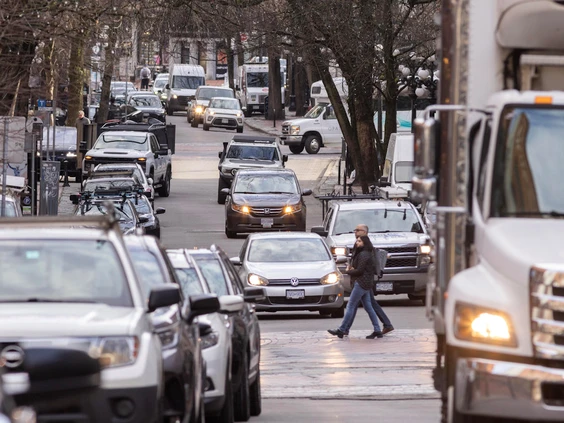Barely a decade after British Columbia was emblazoning its licence plates with the slogan “best place on Earth,” a new poll finds that one third of the province doesn’t want to live there anymore.
And British Columbians are not alone. Among the many bad economic indicators plaguing Canada right now, one of the more prescient is that millions of Canadians would rather be somewhere else.
An Angus Reid Institute survey of British Columbians released on Monday found 36 per cent agreed with the sentiment “I’m seriously thinking of leaving British Columbia because of the cost of housing here.”
Similar polls have emerged from Canada’s major urban centres. In April, a Leger poll commissioned by Postmedia found that more than half (54 per cent) of Metro Vancouver residents have considered moving out of the region — with 24 per cent “very” or “somewhat” likely to leave within the next five years.
When these numbers are applied against the Metro Vancouver population, that’s equivalent to 1.5 million residents of the Lower Mainland who would prefer not to be there.
Last year, a report by the Ontario Real Estate Association found that more than 40 per cent of recent post-secondary graduates were thinking of leaving the province due to affordability concerns.
As far back as 2018, another Angus Reid Institute survey found that 58 per cent of renters in the Greater Toronto Area would consider leaving if they could.
The cited reason at the time was high shelter costs, which have increased dramatically in the six years since the study was conducted. The average Toronto renter was paying $1,370 per month in 2018, according to the Canada Mortgage and Housing Corporation. As of the latest count, that had risen to $1,830
These sentiments appear to be playing out in real time, as Canadian migration to the United State reaches new highs.
New figures from the U.S. Census Bureau found that 126,340 moved to the United States from Canada in 2022. It’s a huge spike over any of the past 10 years, and a nearly 70 per cent increase from the 78,452 who made the move in 2019, the last full year before the COVID-19 pandemic.
About 50,000 of this exodus were Canadian-born, with the rest being a mixture of American expats returning home and Canadian immigrants pulling up stakes for greener pastures.
Even though Canada’s rate of in-migration remains at all-time highs, it has corresponded with a notable increase in disappointed newcomers who immediately start making plans to leave.
In March, a survey of recent immigrants by the Institute for Canadian Citizenship found that as many as one fifth of respondents wanted to leave. Among recent immigrants under the age of 34, 30 per cent said they were “likely” to leave within the next two years.
As with the one-third of British Columbians who want to leave, the chief issue scaring away new immigrants in affordability.
The post-COVID years have seen a wave of interviews in Canadian media with recent immigrants expressing their shock at how expensive it is to survive in their new home.
Oleksii Martynenko, a refugee from the war in Ukraine, told a Bloomberg News reporter in November that he’s needed to work seven days a week just to afford basic and shelter.
“I’m tired all the time now. I want to go back to Europe because it’s such a difficult life in Canada,” he said.
In February, a feature by the BBC noted the phenomenon of the Indian state of Punjab receiving a return tide of one-time migrants to Canada.
“Everything was so expensive. I had to work 50 hours every week after college, just to survive,” was how one 28-year-old Punjabi described his life in Toronto. He was one of a dozen “reverse migrants” who told the broadcaster that the “Canada craze” was over.
Amid high numbers of Canadians wanting to live somewhere else, they also don’t seem tremendously pleased with where they’re working.
In March, a report by the recruitment multinational Hays found that 71 per cent of Canadian workers wanted to leave their jobs within the next 12 months, as compared to 61 per cent who had said the same the year before.
Last modified: January 22, 2025


